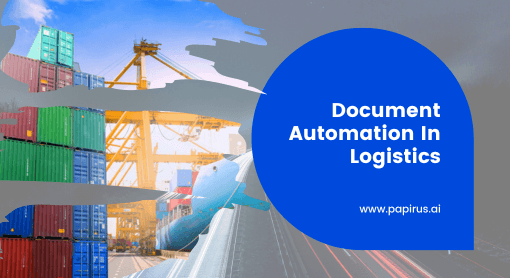
Document Automation in Logistics Companies
Logistics is one of the sectors where processes are intensively based on documents. The numbers here are in the billions. Relevant finance and operation teams will be responsible for the invoices, declarations, bills of lading, etc. here. processing the paperwork. They enter the information here into their TAS applications. Processes are often manual. This makes the process very costly.
Activities such as extracting data from invoices and other logistics documents are repetitive processes. They are therefore highly amenable to automation. With automation, logistics companies and freight forwarders can reduce their costs considerably.
Business Insider‘s reportshows that businesses using invoice automation reduced their costs by 81%. It also made processing times 73% faster.
Logistics companies and freight forwarders do not only work with invoices. Bill of lading, declaration, CMR etc. data entry of all documents is needed. The only solution to prevent inefficiency here is through an automated data capture automation system. It is almost impossible to meet logistics company-specific needs with a generic OCR solution. A specialized solution focused on the logistics sector is required.
The traditional OCR solution relies solely on optical character recognition (OCR) technology, which uses templates and rules to extract data from documents. These are completely sufficient for your average company that processes standard documents with very few changes.
However, the logistics sector is far from traditional and generic.
There are many different types of logistics documents that come in all kinds of shapes, sizes and variations. Almost all documents are in semi-structured or unstructured format. The solution to be developed must have the sectoral expertise to meet the needs here.
Papirus AI understands the dynamics of the logistics industry. Beyond traditional OCR, it gives what is needed, not just the data it sees. Invoice, declaration, CMR, bill of lading, etc. specializes in documents. It does this with artificial intelligence algorithms developed specifically for the sector. It is integrated with TMS or ERP applications used by logistics, customs companies, freight forwarders.
To shorten your document processing times and increase your efficiency in the logistics sector contact us.